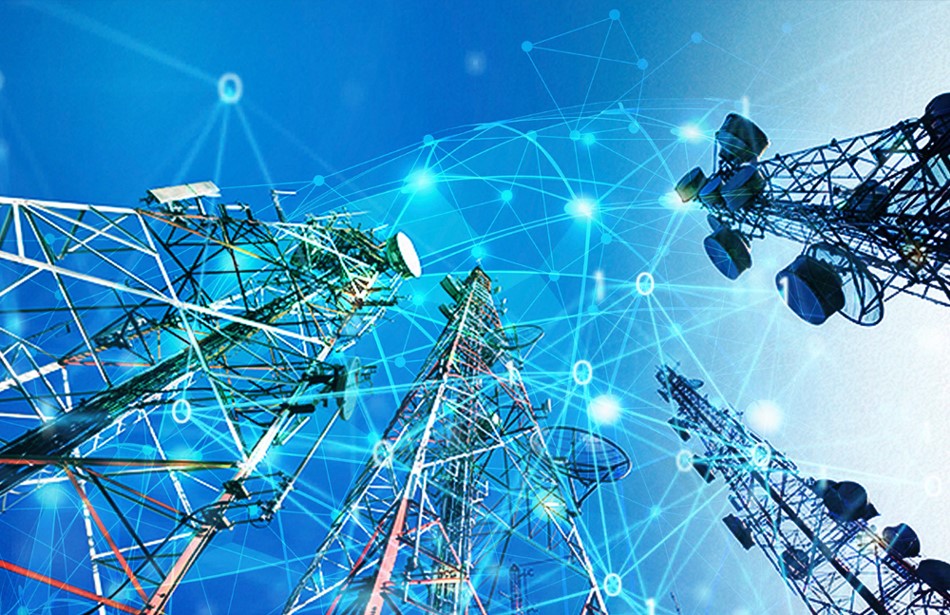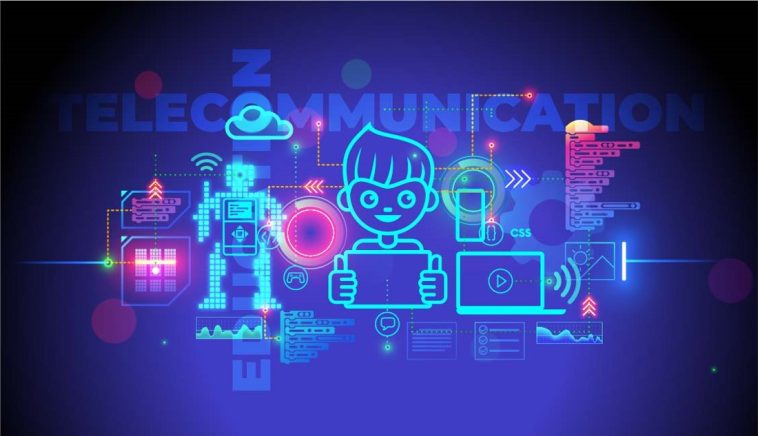The telecommunications landscape in Pakistan is undergoing significant transformations in 2023, driven by rapid advancements in technology. This article explores the current state of telecommunications in Pakistan, the technological developments shaping its future, and the potential impact on various industries. We will also discuss the challenges and opportunities that lie ahead, along with the government’s initiatives and regulatory framework. By the end, we will paint a comprehensive picture of the future of telecommunications in Pakistan.
Telecommunications has become an integral part of our daily lives, connecting people, businesses, and governments across the globe. In Pakistan, the telecommunications sector has witnessed remarkable growth over the years, and with the advent of 2023, the future looks promising. The country is set to embrace cutting-edge technologies that will revolutionize the way we communicate, work, and live.
Read More: MOITT and Telecom are Striving to bring a Digital Pakistan Policy 2021
Explore the Contents
- 1 Current State of Telecommunications in Pakistan
- 2 Advancements in Telecommunications Technology
- 3 Impact of Telecommunications on Various Industries
- 4 Challenges and Opportunities
- 5 Government Initiatives and Regulatory Framework
- 6 Future Prospects and Predictions
- 7 Conclusion
- 8 FAQs (Frequently Asked Questions)
Current State of Telecommunications in Pakistan
Before diving into the future, it is essential to understand the current state of telecommunications in Pakistan. The country already has a well-established cellular network infrastructure, with millions of subscribers enjoying voice and data services. However, the demand for faster, more reliable connections and innovative solutions continues to grow.
Advancements in Telecommunications Technology
5G Network Implementation
One of the most significant developments in the telecommunications industry is the implementation of 5G networks. 5G promises lightning-fast speeds, reduced latency, and increased capacity compared to its predecessor, 4G. In Pakistan, the deployment of 5G networks is already underway, and it is expected to bring transformative changes across various sectors.
Internet of Things (IoT)
The Internet of Things (IoT) is another technology that is set to reshape the telecommunications landscape in Pakistan. IoT enables devices to connect and communicate with each other, creating a vast network of interconnected devices. This technology has the potential to revolutionize industries such as healthcare, agriculture, transportation, and smart cities.
Artificial Intelligence (AI) in Telecommunications
Artificial Intelligence (AI) is playing a crucial role in transforming the telecommunications sector. AI-powered chatbots, virtual assistants, and predictive analytics are improving the overall customer experience, making it more personalized and efficient. In Pakistan, AI is being integrated into telecommunications systems to enhance network management, customer support, and predictive maintenance.
Cloud Computing and Edge Computing
Cloud computing and edge computing are two complementary technologies that are reshaping the future of telecommunications. Cloud computing allows for the storage and processing of data on remote servers, offering scalability and flexibility. On the other hand, edge computing brings computation and data storage closer to the source, reducing latency and enabling real-time processing. These technologies enable faster data transmission, seamless connectivity, and efficient resource allocation.
Impact of Telecommunications on Various Industries

The advancements in telecommunications technology are set to have a profound impact on various industries in Pakistan. Let’s explore how telecommunications will transform key sectors:
Healthcare
Telecommunications technology will revolutionize healthcare delivery in Pakistan. With the implementation of 5G networks, doctors will be able to conduct remote consultations, monitor patients’ vital signs in real time, and facilitate telemedicine services even in remote areas. IoT devices and wearables will enable continuous health monitoring, leading to early detection of diseases and improved patient outcomes.
Education
The future of education lies in digital connectivity. Telecommunications will enable remote learning, allowing students to access educational resources and participate in virtual classrooms from anywhere in the country. Live streaming of lectures, interactive online courses, and collaborative platforms will enhance the learning experience and bridge the educational divide between urban and rural areas.
Finance
Telecommunications advancements will revolutionize the financial sector in Pakistan. Mobile banking and digital payment solutions will become more widespread, providing financial services to the unbanked population. The seamless connectivity offered by 5G networks will enable secure and efficient transactions, reducing costs and increasing financial inclusion.
E-commerce
The e-commerce industry in Pakistan will thrive with the advancements in telecommunications. Faster and reliable networks will facilitate smooth online shopping experiences, secure payment gateways, and efficient logistics. Additionally, technologies like augmented reality (AR) and virtual reality (VR) will enhance the online shopping experience, allowing customers to visualize products before making a purchase.
Challenges and Opportunities

While the future of telecommunications in Pakistan holds immense potential, it also brings forth certain challenges and opportunities that need to be addressed.
Infrastructure Development
Expanding and upgrading the existing telecommunications infrastructure is crucial for embracing the future. This includes the deployment of 5G network infrastructure, improving broadband connectivity, and ensuring coverage in rural and underserved areas. Investments in infrastructure development will be essential to provide seamless and reliable telecommunications services across the country.
Cybersecurity
With increased connectivity comes an increased risk of cybersecurity threats. Protecting personal data, preventing cyber-attacks, and ensuring data privacy will be critical in the future of telecommunications. Robust cybersecurity measures and regulations must be implemented to safeguard individuals, businesses, and government entities from potential breaches.
Skill Development
The rapid technological advancements in telecommunications require a skilled workforce capable of harnessing the potential of emerging technologies. Skill development initiatives, training programs, and collaborations between academia and industry will be crucial to bridge the skill gap and empower individuals to leverage telecommunications technology effectively.
Rural Connectivity
Bridging the digital divide between urban and rural areas is a significant challenge in Pakistan. The government and industry stakeholders need to collaborate to ensure affordable and accessible telecommunications services in rural communities. This includes improving network coverage, promoting digital literacy, and providing incentives for telecommunications providers to invest in rural connectivity.
Government Initiatives and Regulatory Framework
The government of Pakistan recognizes the importance of telecommunications in driving economic growth and development. It has taken several initiatives to promote the expansion and modernization of the telecommunications sector. The regulatory framework aims to foster competition, protect consumer rights, and ensure fair practices in the industry. Some of the government initiatives include providing incentives for investment in infrastructure development, promoting research and development in telecommunications technology, and formulating policies to encourage innovation and competition.
The regulatory framework ensures that telecommunications operators comply with standards, licenses, and quality of service requirements. It also protects consumers’ rights, promotes fair pricing, and addresses issues related to privacy and data protection. The government’s proactive approach to creating a favorable environment for telecommunications growth sets the stage for a promising future.
Future Prospects and Predictions
The future of telecommunications in Pakistan is filled with exciting prospects and potential. Based on current trends and advancements, we can make several predictions for the coming years:
Increased Connectivity and Accessibility
The implementation of 5G networks and the expansion of broadband infrastructure will result in increased connectivity and accessibility across the country. More individuals, businesses, and communities will have access to fast and reliable telecommunications services, bridging the digital divide and fostering socio-economic development.
Enhanced User Experience
Technological advancements such as IoT, AI, and cloud computing will enhance the user experience in telecommunications. Customers will enjoy seamless connectivity, personalized services, and real-time interactions. From faster download speeds to smart homes and connected cars, telecommunications will enrich daily life experiences for individuals in Pakistan.
Integration of Emerging Technologies
Telecommunications will continue to integrate emerging technologies to meet evolving needs. Virtual reality, augmented reality, and holographic communications will become more prevalent, transforming how people communicate and collaborate. The convergence of telecommunications, entertainment, and other industries will create new opportunities and innovative services.
Read More: The Importance of STEM Education in Pakistan 2023
Conclusion
The future of telecommunications in Pakistan is poised for remarkable advancements. The implementation of 5G networks, IoT, AI, and cloud computing will reshape and live in the country. These advancements will have a profound impact on various sectors, including healthcare, education, finance, and e-commerce. Through remote consultations, telemedicine services, remote learning, and digital financial transactions, telecommunications will enable greater convenience, accessibility, and efficiency.
However, along with the opportunities, some challenges need to be addressed. Infrastructure development, cybersecurity, skill development, and rural connectivity are key areas that require attention. The government’s initiatives and regulatory framework play a crucial role in fostering a conducive environment for telecommunications growth and ensuring fair practices.
In conclusion, the future of telecommunications in Pakistan holds tremendous potential for connectivity, innovation, and economic growth. The integration of emerging technologies and the expansion of infrastructure will lead to enhanced user experiences, increased accessibility, and transformative changes across various industries. With the government’s support and industry collaboration, Pakistan is on the path to a technologically advanced and connected future.
FAQs (Frequently Asked Questions)
FAQ 1: How will 5G impact everyday life in Pakistan?
5G networks will revolutionize everyday life in Pakistan by providing faster download and upload speeds, reduced latency, and seamless connectivity. It will enable advancements in areas such as remote healthcare, smart homes, autonomous vehicles, and immersive virtual experiences.
FAQ 2: Will the implementation of IoT be affordable for businesses in Pakistan?
As technology progresses, the cost of IoT devices and solutions is expected to decrease, making them more affordable for businesses in Pakistan. Additionally, the benefits and efficiency gains offered by IoT implementations can often outweigh the initial investment costs.
FAQ 3: How will telecommunications advancements benefit the healthcare industry?
Telecommunications advancements will benefit the healthcare industry in Pakistan by enabling remote consultations, telemedicine services, real-time patient monitoring, and efficient healthcare delivery. It will bridge the gap between healthcare providers and patients, especially in rural and underserved areas.
FAQ 4: What steps is the government taking to improve rural connectivity?
The government of Pakistan has launched various initiatives to improve rural connectivity. These include infrastructure development projects, incentives for telecommunications providers to expand coverage in rural areas, and programs to promote digital literacy among rural communities.
FAQ 5: What are the potential risks associated with AI in telecommunications?
While AI brings significant benefits to the telecommunications sector, there are potential risks to consider. These include data privacy concerns, the ethical use of AI algorithms, and the potential for job displacement. It is essential to establish robust regulations and guidelines to mitigate these risks.



